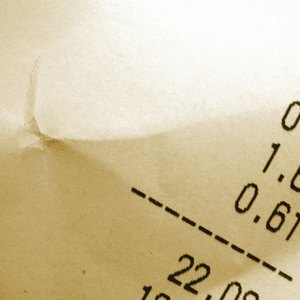
There are a few types of financial statements. Each one contains different information. Knowing the types will give you an edge in researching investments. The income statement is the statement people usually look at first. It shows how profitable the company was on an accrued basis during a time period. Be careful, however. Net income does not equal cash flow and can be different.. An income statement has revenues and expenses. Different companies have different expenses, but some accounting expense items repeat often.
Cost of Goods Sold
Cost of goods sold is usually one of the first expense items on the income statement. Cost of goods sold is the costs a company incurred to develop the products it sold during the time period. The cost of goods sold changes depending on if the company keeps track of its inventory using FIFO or LIFO. FIFO is first in first out, while LIFO is last in first out. Usually, FIFO under reports cost of goods sold because by definition, the older inventory will be first sold. LIFO users have a cost of goods sold figure that's closer to reality because the inventory costs reported in cost of goods sold are the most recent costs of inventory.
Depreciation
Depreciation is another expense item and is a deduction that the company takes for equipment and other fixed costs. When a company buys capital equipment, it is not allowed to deduct the whole amount in the year it buys it because the useful life is much longer than a year. Accounting rules specify the useful life of different capital equipment and over what period a company can deduct those expenses.
Research and Development
Research and development expense is common among tech companies and companies that develop drugs. Both invest a lot of money in research to develop new products. Although accounting rules treat research and development as an expense, there is merit to the argument that it is more of an investment and has value to third parties. For example, if a tech company is halfway through developing a new chip, all of that money spent is treated like an expense, and it is nowhere on the balance sheet as other investments such as capital equipment would be.
Income Statement Analysis
Knowing the accounting treatment for different expense items may give you a better idea of the value of the company. If you are comparing two companies with different inventory accounting systems, you will know to adjust one of them to make the companies comparable. It also helps knowing how depreciation works to know if the statement is accurate or overstating or understanding earnings.
References
Writer Bio
Alex Shadunsky has a bachelor's degree in finance and is pursuing a Master of Business Administration from Indiana University. He has worked at Briefing.com as a junior equity analyst specializing in health-care stocks.

